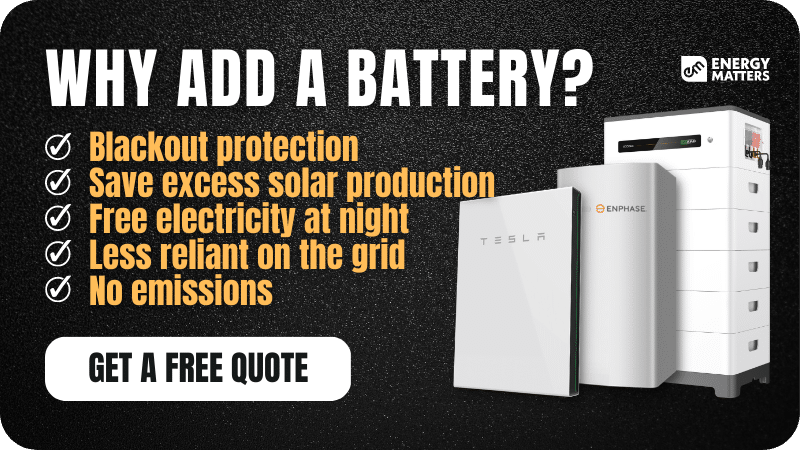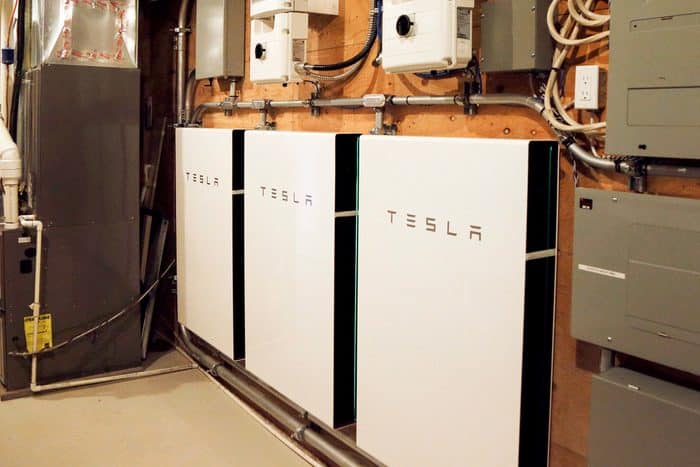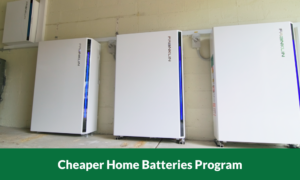Many households in Australia are struggling with skyrocketing electricity prices,
urging an increasing number of them to switch to solar. Rooftop solar panels are seen as a necessity, and many homeowners are getting solar batteries to make the most out of their solar power.
With a solar system and a battery, homeowners are able to reduce their grid dependency, leading to more energy savings and greater energy security.
The rise of solar batteries
Due to the known benefits of solar, and the push to rely less on the fluctating grid, there has been a rapid uptake of solar batteries. SunWiz, market analyists for the solar industry, showed that over 47,000 residential batteries were installed across the country in 2022.
This is a 55 per cent leap from 2021, and one battery was installed for every seven solar systems added to the network during 2022. As a result, approximately 180,000 Australian households have a battery system.

According to the solar consultancy company, Australia could have as many home batteries as predicted for 2020 in 2027 if residential solar battery growth continues.
The country is also leading in the building of big batteries worldwide. Currently, South Australia has the most home batteries.
The reasons behind the spike in Australian home solar batteries
Australians are investing in home solar batteries for many reasons, but the main reason is to save more money on electricity prices.
Homes that are busy during the evening don’t need to buy grid electricity; instead, they can use free power from the battery to charge the home throughout the night.
Another reason is the rates of Feed-in Tariff (FiT) are slowly declining. There has been a steep decline in the rate since its peak in 2010, with the average FiT rate currently around 7 cents per kilowatt hour. Instead of selling solar power back to the grid, homeowners purchase a solar battery to store solar. In turn, they get the most out of their solar power by using their stored energy during peak usage hours.
The Australian Energy Market Commission (AEMC) reported that owning a battery increased from 0.15-0.20 $/kWh in 2020 to approximately 0.24 $/kWh in 2021. It is predicted that this trend will continue as FiTs fall.
AEMC also predicts a possible net benefit of 0.30 $/kWH in 2024-2025 that would further reduce payback periods. With this, a payback period is expected to be around 7.5 years in 2025, bringing it under the standard ten-year warranty period. Theoretically, this will deliver 2.5 years of guaranteed cost-free battery usage.

There is also the case of blackouts. Blackouts are inconvenient and sometimes catastrophic. ith an increasing number of people working from home, businesses requiring a non-stop electricity supply, and many households relying on stable electricity for powering life support, consistent access to electricity is a necessity. The risk of a power outage is usually too great; hence, many homeowners choose to install a solar battery to protect their homes from blackouts.
Solar batteries also have a lower carbon footprint. It can reduce a household’s CO2 emissions, and with a solar battery, you can reduce the amount of grid electricity you use. Battery storage can power your home throughout the night with the electricity your rooftop solar panels generated during the day.
There are also significant changes in power usage, and as electrification weeps across the country, everybody’s energy needs will change. Eventually, homes will be fully electric as well as vehicles.
A solar battery is an excellent way to prepare for the future, as it can give you the capability to run your home on clean solar energy.
Finally, there are excellent battery rebates and incentives you can take advantage of today, depending on your state. For example, South Australia has a better rebate of up to $3,000 with the option to participate in a Virtual Power Plant (VPP).
On the other hand, New South Wales (NSW) provides an interest-free loan of up to $14,000 for homeowners with solar batteries.

Energy Matters has over 17 years of experience in the solar industry and has helped over 40,000 Australian households in their journey to energy independence.
Complete our quick Solar Quote Quiz to receive up to 3 FREE quotes from trusted local installers – it’ll only take you a few minutes and is completely obligation-free.












































